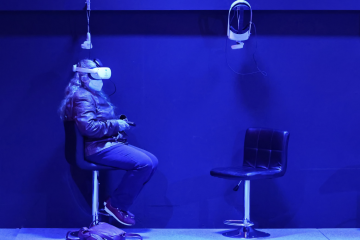National Football League (NFL) team the Washington Redskins has been heavily criticized for the name of their team, a name that is said to offend Native Americans. The recent controversy began when President Barack Obama said, in an interview to the Associated Press on Oct. 5, that if he were the owner of the team he would “think about changing” the name.

Proposals to change the name “Redskin” have been made for decades, however, it is only after the President’s statement that the NFL, as well as the Washington Redskins owner, Dan Snyder, are forced to take them seriously. When asked about the pressure received to change the name, Snyder said in May to USA Today, “We’ll never change the name. It’s that simple.”
In the battle to change Washington’s team name, one group has largely been overlooked: the Native Americans themselves. Considering that the focus of news outlets has been primarily centered around Snyder’s reaction, Native Americans have been neglectfully excluded from the conversation. No recent polls have been conducted to understand the current attitudes of Native Americans towards the name. The Oneida Indian Nation, however, has made their voice heard in the media as a representative of Native Americans in the country. According to CBC, Ray Halbritter, leader of the tribe from upstate New York, said in a speech in Washington that the team’s nickname is “a painful racial epithet first used against my people when we were held at gunpoint; it is a word that tells our children that they are second-class citizens.”

On Oct. 7, Halbritter held a symposium that included a panel of Native American leaders discussing their opinion of the Washington Redskins name. Kevin Gover, director of the National Museum of the American Indian, said, “This word is an insult that is mean, rude and impolite.” Gover also discussed the historical context in which the term emerged in sports leagues. He said, “The 1920s, when these names emerged in sport, were a low point in Native American history. Our people were confined to reservations and this was another way to assert dominance. It was a way to say, ‘We own you’ and ‘We can use your image how we choose’.”
In May 2013, ten members of Congress sent a letter to Snyder, Roger Goodell – Commissioner of the NFL, and FedEx – a sponsor for the team’s stadium, requesting that the name be changed due to its negative connotations for Native Americans. The members also expressed their support for the Non-Disparagement of Native American Persons or Peoples in Trademark Registration Act introduced in March of this year. If this act is passed, no mark containing the word “redskin” would be registrable and trademarks already registered, including the Washington Redskins, would be subject to cancellation. According to the Washington Post, a decision is expected soon.
In his interview, President Obama underscored a key issue in the debate over the Redskins name, that of whether fan attachment and nostalgia for the name is stronger than the offense it has caused in society. He said, “I don’t know whether our attachment to a particular name should override the real legitimate concerns that people have about these things.” Halbritter said the NFL and Snyder could “borrow a page from the president” and use the changing of the team name as a “teachable moment.”




